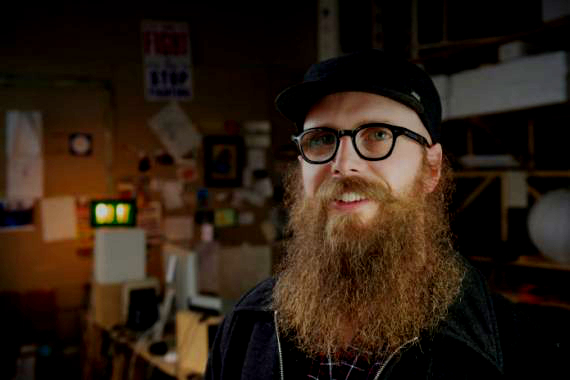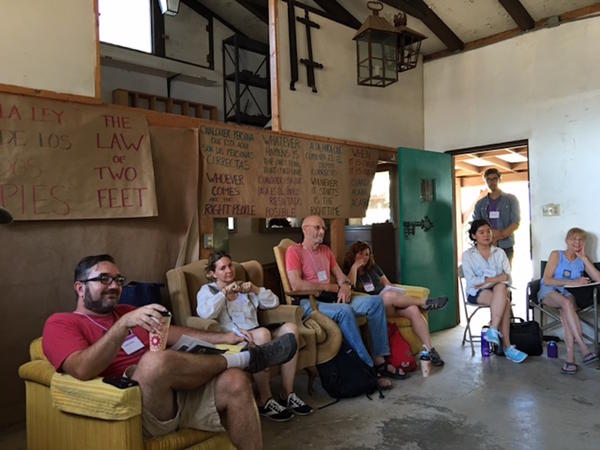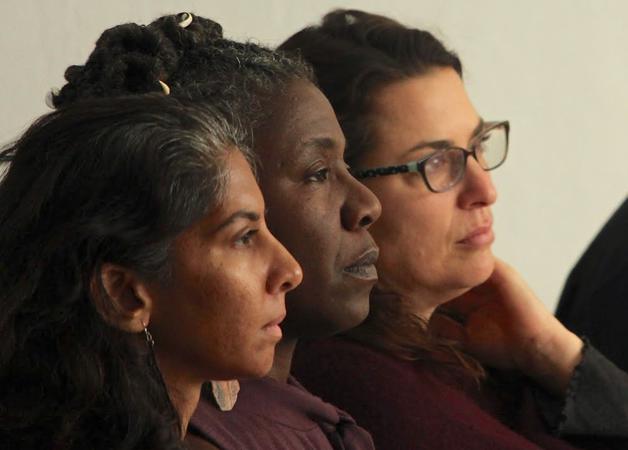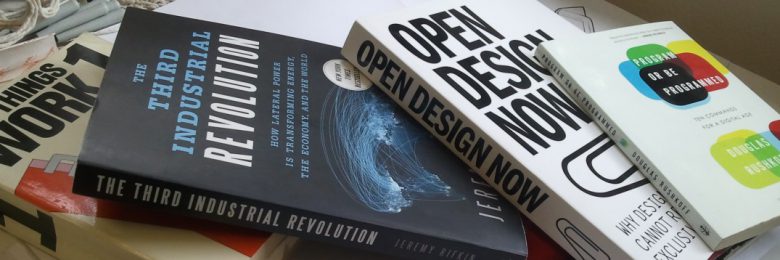Urbanization pervades conversations about the human future. Yet some people emigrate from the city to rural areas. Those who do bring exposure to complex social dynamics and ubiquitous technology. Yet they typically do not relocate to the country in order to corporate agricultural operations. Rural natives of course have a culture in place. As they… Continue reading
When Memes Fail Us
I know this has been a rough time for a lot of you, and I hope you are doing well. In brief: Yes, there has been a major electoral upheaval, and it seems there are many confused people out there working under some pretty strange assumptions. But no, this isn’t as much of a shift… Continue reading
Free and open WiFi networks Endangered in the EU
The P2P Foundation supports this campaign to protect open wifi networks. The following text was written by the Pirate Party’s Julia Reda: tl;dr: Projects building open communications networks using custom router software are playing an important role in providing refugees with Internet access. Last year, largely unbeknownst to the public, a new EU directive was… Continue reading
Portpatrick: How community shares saved a village
In Portpatrick, a fishing village on the west coast of Scotland, locals sold shares in their historic harbour to save it from private ownership. Read the full story at the Guardian: theguardian.com/society/2016/sep/28/how-scottish-villagers-bought-portpatrick-harbour-saved-futurePhoto by WorldFish
Expert Michel Bauwens researches Ghent as the ‘commons city of the future’
We’re very happy to announce this project for 2017. Cross-posted from Stad.gent. A Commons Transition Plan will describe the role and possibilities for the City in reinforcing citizen initiatives. From 15 March 2017 peer-to-peer expert Michel Bauwens will conduct a three-month research and participation project in Ghent on the ‘commons city of the future’. The… Continue reading
Cooperative and Common Ownership
Certain changes to the cooperative form could permit the creation of enterprises that would not belong to anyone specifically but would be at the disposal of its users, workers and clients alike We have argued in the past few years for a new form of ‘open cooperativism’ in which cooperatives would engage themselves structurally and legally… Continue reading
It was the Democrats’ embrace of neoliberalism that won it for Trump
As part of our series analysing Trump’s victory and its consequences for all change-making movements, Naomi Klein writes the following for the Guardian: They will blame James Comey and the FBI. They will blame voter suppression and racism. They will blame Bernie or bust and misogyny. They will blame third parties and independent candidates. They will blame the… Continue reading
Open Source Revolution Circumvents Capitalist Monopoly
As my C4SS comrade Charles Johnson has pointed out, circumventing state authority and capitalist monopoly is far more cost-effective than lobbying and organizing to reform the law. This is confirmed, once again, by news of open-source hardware projects that offer much cheaper versions of two outrageously expensive medical devices: the EpiPen and the MRI machine…. Continue reading
Be more Human – Capital
This is the first article of the Be More Human series, which explores ideas and issues that define the new economy. This piece was written by Pedro Jardim and edited by Ben Riddle. The article was originally published at Coliga: “When I was 17, I moved from my birthplace in São Paulo, Brazil to Germany…. Continue reading
Team Human 11: Steve Lambert on Public Displays of Collaboration
http://teamhuman.fm/wp-content/uploads/2016/10/TH_11-Steven-Lambert.01_01.mp3 Playing for Team Human is art activist Steve Lambert. Steve reclaims public spaces with his work, igniting the radical imagination and critical thinking of his audience collaborators. With his recent piece, “Capitalism Works For Me!(True/False),” Lambert brought an interactive scoreboard out to the public, and in doing so, sparked an honest, candid, and personal discussion… Continue reading
Collaboratively Generating More Knowledge: Public Lab’s Approach to Citizen Science
Creative Commons: Citizen science is the powerful idea that communities should be empowered to participate in the process of scientific inquiry, investigating the world around them and creating societal change in the process. One of the most prominent projects within the citizen and civic science movement is Public Lab, a community of individuals using inexpensive… Continue reading
In Brussels, Online Food Couriers Launch Their Own Platform Co-Op
Crossposted from Platformcoop.net Matthieu Lietaert: The sector of online food delivery is booming in many cities in the economically developed world. It’s a promising market and many corporations like Deliveroo or UberEATS are pedaling fast to move in and win the race. The recent strikes of couriers’ have shown that despite all the millions of dollars in venture capital, the human factor is… Continue reading
Lessons on Creating an Equitable and Sustainable Economy
Maira Sutton: The economy can often feel like it’s out of our control — a system that abides by its own forces that we have no power to influence. While business reporters tend to spotlight the rise and fall of stock prices and policymakers focus on gross domestic product (GDP) to push their agendas, these… Continue reading
Democracy Series: Vorarlberg Civic Councils
This month, the United States news media began fretting publicly over “fake news”. Stanford university published a study revealing that middle school students did not distinguish between “sponsored content” and real news. If you are laughing as you read this, I can’t fault you. In the United States a dozen billionaires own nearly all media companies…. Continue reading
Patents and the Limits of Open Source Licenses
We’re happy to share this recent article on CopyFair tendencies. It was written by Brian Loudon and originally published in loud1design.co.uk: On Patents, Open Source Design and Reciprocity I previously blogged on open source and IP here and I wanted to revisit this in a more concise way to focus in on the limitations of open… Continue reading
Global population does not want commercial banks to stay responsible for creating most of the money
A very interesting report on public perception regarding money creation. Originally published in Positive Money’s website. More than 23,000 people in 20 countries were asked about who they think actually creates 95% of the money in circulation and who they think should create most of the money. These questions were part of the Glocalities survey… Continue reading















